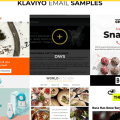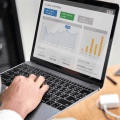In today’s competitive business environment, understanding your audience is key to effective marketing. Customer segmentation software is an innovative solution that transforms raw data into actionable insights, enabling businesses to target their audience more precisely. It’s essential for crafting personalized marketing strategies that resonate with different customer groups. Keep reading to discover how leveraging such technology can optimize your marketing efforts and drive substantial growth for your brand.
Table of Contents
Understanding Customer Segmentation Software and Its Role in Marketing

Customer segmentation software serves as a crucial tool for marketers looking to enhance the efficacy of their campaigns. By dividing a customer base into distinct groups based on shared characteristics, such as demographics, purchasing behavior, and psychographics, this software allows companies to gain a deeper understanding of their market.
Combining data analysis with machine learning algorithms, customer segmentation software dynamically categorizes customers, ensuring that the segments remain relevant over time. As consumer behaviors and preferences evolve, the software adapts, consistently providing marketers with up-to-date information. This adaptability is central to maintaining a competitive edge in a landscape where change is the only constant.
The role of a customer segmentation software tool like Adestra in marketing extends beyond just classification. It lays the foundation for developing targeted marketing strategies that speak directly to the needs and desires of focused groups. By tailoring marketing efforts to specific segments, businesses can create more compelling offers and messages that resonate on a personal level.
Driving Campaign Efficiency: How Software-Enabled Segmentation Reduces Cost
Efficiency in marketing campaigns is not just about the speed of execution but also about cost-effectiveness. By utilizing customer segmentation software, businesses can identify the most profitable customer segments and allocate their budget accordingly. This strategic approach prevents financial wastage on poorly targeted campaigns, thus optimizing the overall marketing budget.
Additionally, segmentation software helps refine the scope of marketing initiatives by eliminating guesswork. Marketers are equipped with detailed insights to craft messages that strike a chord with specific segments, reducing trial-and-error approaches and enhancing campaign success rates.
The predictive capabilities of customer segmentation software also play a significant role in budget optimization. By forecasting future buying behaviors and segment growth, marketers can proactively adjust their campaigns, ensuring they are always engaging the most lucrative and responsive audiences. This forward-thinking mindset keeps marketing efforts efficient and aligned with business goals.
Enhancing Customer Experience Through Personalized Marketing Strategies
Crafting personalized marketing strategies is the hallmark of customer-centric businesses, and customer segmentation software is a facilitator of this approach. Delivering content that aligns with individual preferences and behaviors not only boosts engagement but also enhances the overall customer experience. By feeling seen and understood, customers form a stronger emotional connection to the brand.
Personalization extends to offers and promotions as well. Segmentation software can identify which customers are more price-sensitive, who are frequent buyers, or those who respond well to exclusive deals. Armed with this knowledge, businesses can create offers that cater precisely to the motivations of each customer group.
Beyond making customers feel valued, personalization has a tangible impact on customer retention. Consistent and relevant communication fosters a sense of belonging among customers, leading to increased loyalty and a higher lifetime value. Thus, the customer experience is not merely enhanced—it’s transformed into a sustainable competitive advantage.
Measuring Success: The Impact of Segmentation Software on ROI and Conversion Rates
Measuring the success of marketing strategies is essential for continual improvement, and customer segmentation software plays an integral role in quantifying this success. By tracking the performance of different segments, marketers gain insight into which strategies yield the highest return on investment (ROI) and why. This data-driven approach allows for fine-tuning future campaigns to better serve customer needs and ensure maximum ROI.
Segmentation’s impact on key performance indicators (KPIs) extends beyond the immediate. Long-term KPIs, such as customer loyalty and brand perception, are also positively affected by tailored marketing strategies. These benefits demonstrate that segmentation software is not just an operational tool—it’s a strategic asset that can elevate a brand to new heights of success.
Overall, the advantages of customer segmentation software in improving marketing strategies are undeniable. Not only does it enable more effective campaign targeting and personalization, but it also has a measurable impact on efficiency, customer experience, and ultimately, the bottom line. By harnessing the power of segmentation, businesses can create marketing strategies that are not just compelling but also cost-effective and conversion-driven, securing a stronger market position for years to come.
























